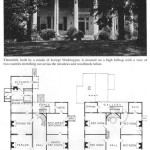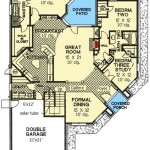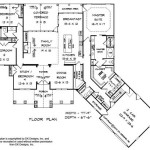House plans serve as the blueprints for constructing a home, outlining the layout, dimensions, and structural details of the building. These plans provide a comprehensive visualization of the intended structure, ensuring accurate construction and alignment with the homeowner’s vision.
Determining who possesses the expertise to draw up house plans is crucial in ensuring the successful execution of any construction project. While many individuals may attempt to design their own floor plans, seeking professional assistance is often the most prudent course of action, as it guarantees adherence to building codes, structural integrity, and efficient space utilization.
In this article, we will delve into the various professionals who can draw up house plans, exploring their qualifications, expertise, and the benefits of engaging their services.
Various professionals possess the expertise to draw up house plans, ensuring adherence to building codes and structural integrity.
- Architects
- Architectural Designers
- Structural Engineers
- Building Designers
- Interior Designers
- Home Designers
- Civil Engineers
- Architectural Technologists
- Drafting Professionals
- Licensed Contractors
Seeking professional assistance guarantees accurate construction and efficient space utilization.
Architects
Architects are licensed professionals with extensive training and expertise in design and construction. They possess a deep understanding of building codes, structural principles, and aesthetic considerations. Engaging an architect to draw up house plans offers several advantages:
- Comprehensive Design: Architects take a holistic approach to design, considering not only the functionality and aesthetics of the building but also its integration with the surrounding environment and the client’s lifestyle.
- Technical Proficiency: Architects are well-versed in the technical aspects of construction, including structural engineering, HVAC systems, and electrical wiring. This expertise ensures that the house plans are accurate, feasible, and compliant with building codes.
- Project Management: Architects often oversee the entire construction process, from design conception to project completion. They coordinate with engineers, contractors, and other professionals to ensure the project is executed according to the plans.
- Professional Liability: Architects are held to high standards of professional conduct and are liable for any errors or omissions in their work. This provides homeowners with peace of mind knowing that their house plans have been prepared by a qualified and accountable professional.
While the services of an architect typically come with a higher cost, their expertise and comprehensive approach can save time, money, and headaches in the long run. Architects are highly recommended for complex or large-scale projects, as well as for homeowners who seek a custom-designed home that meets their specific needs and aspirations.
Architectural Designers
Architectural designers are professionals who specialize in the design of buildings, including residential homes. They possess a strong understanding of architectural principles, building codes, and construction techniques. While they may not hold the same level of licensing as architects, architectural designers are highly skilled and experienced in creating functional and aesthetically pleasing house plans.
Engaging an architectural designer to draw up house plans offers several advantages:
- Specialized Expertise: Architectural designers focus primarily on residential design, giving them a deep understanding of the specific needs and challenges of designing homes. They are well-versed in the latest trends and materials, and can provide valuable insights into creating a home that meets the client’s lifestyle and budget.
- Cost-Effective: Compared to architects, architectural designers typically charge lower fees for their services. This can be a significant consideration for homeowners who are working with a limited budget.
- Flexibility and Customization: Architectural designers are often more flexible and willing to accommodate the client’s specific requests and preferences. They can work closely with homeowners to create a design that perfectly aligns with their vision and needs.
Architectural designers are a great option for homeowners who seek a custom-designed home without the need for the full range of services provided by an architect. They are particularly well-suited for smaller or less complex projects, as well as for homeowners who have a clear idea of what they want and are looking for a designer to help them bring their vision to life.
However, it is important to note that architectural designers may not be licensed in all jurisdictions. Homeowners should always verify the licensing requirements in their area and ensure that they are working with a qualified and experienced professional.
Structural Engineers
Structural engineers are licensed professionals who specialize in the design and analysis of structural systems for buildings. They possess a deep understanding of the forces that act on structures, such as gravity, wind, and seismic activity. Structural engineers ensure that buildings are safe and stable, and that they can withstand the various loads they will encounter throughout their lifespan.
Engaging a structural engineer to draw up house plans offers several advantages:
- Safety and Stability: Structural engineers are responsible for ensuring that buildings are structurally sound and can withstand the forces that will be imposed on them. They analyze the loads that the building will experience, such as gravity, wind, and seismic forces, and design the structural system to resist these loads safely and efficiently.
- Compliance with Building Codes: Structural engineers are well-versed in the building codes and regulations that govern the design and construction of buildings. They ensure that the house plans comply with these codes, which are in place to protect the safety of occupants and the general public.
- Efficient Design: Structural engineers strive to design structural systems that are both safe and efficient. They use their expertise to optimize the use of materials and minimize the cost of construction, while still ensuring that the building meets the required safety standards.
Structural engineers are essential for any project involving the design of a new building or the renovation of an existing structure. They play a critical role in ensuring the safety and stability of buildings, and their expertise is invaluable in creating structures that are both functional and aesthetically pleasing.
While structural engineers are not typically responsible for the overall design of a building, they work closely with architects and other design professionals to ensure that the structural system is integrated seamlessly into the overall design. They may also be involved in the construction process, providing oversight and guidance to ensure that the building is constructed in accordance with the plans.
Building Designers
Building designers are professionals who specialize in the design of buildings, with a focus on residential and commercial structures. They possess a strong understanding of architectural principles, building codes, and construction techniques. Building designers are often involved in all aspects of the design process, from conceptual design to construction documentation.
Engaging a building designer to draw up house plans offers several advantages:
- Comprehensive Design: Building designers take a holistic approach to design, considering not only the functionality and aesthetics of the building but also its integration with the surrounding environment and the client’s lifestyle. They are skilled in creating designs that meet the specific needs and requirements of the client.
- Technical Expertise: Building designers are well-versed in the technical aspects of construction, including structural engineering, HVAC systems, and electrical wiring. This expertise ensures that the house plans are accurate, feasible, and compliant with building codes.
- Project Management: Building designers can provide project management services to ensure that the construction process runs smoothly and efficiently. They coordinate with engineers, contractors, and other professionals to ensure that the project is completed on time, within budget, and to the required standards.
- Cost-Effective: Compared to architects, building designers typically charge lower fees for their services. This can be a significant consideration for homeowners who are working with a limited budget.
Building designers are a great option for homeowners who seek a custom-designed home without the need for the full range of services provided by an architect. They are particularly well-suited for smaller or less complex projects, as well as for homeowners who have a clear idea of what they want and are looking for a designer to help them bring their vision to life.
However, it is important to note that building designers may not be licensed in all jurisdictions. Homeowners should always verify the licensing requirements in their area and ensure that they are working with a qualified and experienced professional.
Interior Designers
Interior designers are professionals who specialize in the planning and design of interior spaces. While they are not typically involved in the structural design of a building, they play a vital role in creating functional, aesthetically pleasing, and comfortable living environments.
- Space Planning: Interior designers are skilled in space planning, which involves arranging furniture, fixtures, and other elements within a space to maximize functionality and flow. They consider the needs of the occupants, the intended use of the space, and the overall aesthetic of the home.
- Material Selection: Interior designers have a deep understanding of materials and finishes, and they use their expertise to select materials that are both aesthetically pleasing and durable. They consider factors such as texture, color, and pattern when making their selections.
- Lighting Design: Lighting plays a crucial role in creating the ambiance of a space. Interior designers are skilled in lighting design, and they use a variety of lighting techniques to create the desired effect. They consider both natural and artificial light sources, and they work to create a balanced and inviting environment.
- Furniture and Accessories: Interior designers are also responsible for selecting furniture and accessories that complement the overall design of the space. They consider factors such as style, comfort, and functionality when making their selections. They also use accessories to add personality and character to the space.
Interior designers can be involved in all aspects of the design process, from conceptual design to construction documentation. They work closely with architects, building designers, and other professionals to ensure that the interior design is integrated seamlessly into the overall design of the building.
Home Designers
Home designers are professionals who specialize in the design of residential homes. They possess a strong understanding of architectural principles, building codes, and construction techniques, but their focus is primarily on creating homes that are both functional and aesthetically pleasing.
Engaging a home designer to draw up house plans offers several advantages:
- Custom-Designed Homes: Home designers work closely with homeowners to create custom-designed homes that meet their specific needs and preferences. They consider the homeowner’s lifestyle, budget, and desired aesthetic to create a home that is uniquely tailored to their vision.
- Expertise in Residential Design: Home designers have a deep understanding of the unique challenges and considerations involved in residential design. They are familiar with the latest trends and materials, and they can provide valuable insights into creating a home that is both stylish and functional.
- Cost-Effective: Compared to architects, home designers typically charge lower fees for their services. This can be a significant consideration for homeowners who are working with a limited budget.
- Project Management: Many home designers offer project management services to ensure that the construction process runs smoothly and efficiently. They coordinate with contractors, subcontractors, and other professionals to ensure that the project is completed on time, within budget, and to the required standards.
While home designers may not be licensed in all jurisdictions, they are often certified by professional organizations such as the National Council for Interior Design Qualification (NCIDQ). Homeowners should always verify the qualifications and experience of any home designer they are considering hiring.
Home designers are a great option for homeowners who seek a custom-designed home that meets their specific needs and budget. They are particularly well-suited for smaller or less complex projects, as well as for homeowners who have a clear idea of what they want and are looking for a designer to help them bring their vision to life.
Civil Engineers
Civil engineers possess a specialized understanding of structural analysis, soil mechanics, and project management, making them qualified to draw up house plans.
Their expertise lies in designing and overseeing the construction of infrastructure projects such as roads, bridges, and buildings. This involves analyzing soil conditions, determining structural loads, and ensuring the stability and safety of structures.
Civil engineers are well-versed in building codes and regulations, ensuring that house plans comply with safety standards and zoning requirements. They collaborate with architects and other professionals to design and construct homes that meet the specific needs of clients while adhering to industry best practices.
Engaging a civil engineer to draw up house plans offers several advantages:
- Structural Integrity: Civil engineers prioritize structural integrity, ensuring that homes can withstand various loads and environmental conditions. They analyze soil conditions, calculate structural loads, and design foundations and framing systems to ensure the safety and stability of the structure.
- Compliance with Building Codes: Civil engineers are knowledgeable about building codes and regulations, ensuring that house plans meet all applicable requirements. They consider factors such as fire safety, accessibility, and energy efficiency to ensure compliance with local and national standards.
- Cost Optimization: Civil engineers are trained to design structures efficiently, optimizing material usage and construction methods. They can provide cost-effective solutions without compromising structural integrity or functionality.
- Project Management: Civil engineers often have experience in project management, overseeing the construction process and ensuring that projects are completed on time, within budget, and to the required standards.
While civil engineers may not specialize in architectural design, their expertise in structural engineering and project management makes them valuable contributors to the house planning process. They work closely with architects and other professionals to ensure that homes are both structurally sound and aesthetically pleasing.
Architectural Technologists
Architectural technologists are professionals who specialize in the technical aspects of building design and construction. They possess a comprehensive understanding of building codes, materials, and construction techniques, and they are skilled in using computer-aided design (CAD) software to create detailed house plans.
Architectural technologists work closely with architects and engineers to ensure that house plans are accurate, feasible, and compliant with building codes. They are responsible for developing detailed drawings that specify the dimensions, materials, and construction methods for all aspects of the building, including the foundation, framing, electrical system, and plumbing system.
Engaging an architectural technologist to draw up house plans offers several advantages:
- Technical Expertise: Architectural technologists have a deep understanding of building codes, materials, and construction techniques. They are skilled in using CAD software to create accurate and detailed house plans.
- Compliance with Building Codes: Architectural technologists ensure that house plans comply with all applicable building codes and regulations. This helps to ensure the safety and structural integrity of the building.
- Cost Optimization: Architectural technologists can help to optimize the cost of construction by selecting materials and construction methods that are both cost-effective and durable.
- Project Management: Architectural technologists can provide project management services to ensure that the construction process runs smoothly and efficiently.
While architectural technologists may not be licensed architects, they are highly skilled professionals who can provide valuable services to homeowners and builders. They are a great option for homeowners who are looking for a cost-effective way to create detailed and accurate house plans.
Drafting Professionals
Drafting professionals are skilled technicians who specialize in creating detailed technical drawings and plans. They use computer-aided design (CAD) software to produce precise and accurate drawings that convey the design intent and specifications for a project.
When it comes to house plans, drafting professionals play a crucial role in translating the architect’s or designer’s conceptual ideas into detailed construction documents. They work closely with architects, engineers, and other professionals to ensure that the house plans are accurate, complete, and compliant with building codes and regulations.
Drafting professionals are responsible for creating a variety of drawings, including:
- Floor plans, which show the layout of each floor of the house, including the location of rooms, doors, windows, and fixtures.
- Elevation drawings, which show the exterior of the house from different sides, including the front, back, and sides.
- Section drawings, which show the interior of the house from a vertical perspective, including the framing, insulation, and other structural details.
- Detail drawings, which provide specific information about particular aspects of the house, such as the kitchen layout, bathroom fixtures, or window specifications.
Drafting professionals must have a strong understanding of architectural principles, building codes, and construction techniques. They must also be proficient in using CAD software and other design tools.
Licensed Contractors
Licensed contractors are professionals who have met the requirements for licensure in their respective states or jurisdictions. They possess the necessary knowledge, skills, and experience to construct buildings safely and in accordance with building codes and regulations.
When it comes to drawing up house plans, licensed contractors can provide valuable services to homeowners and builders. They have a deep understanding of construction methods and materials, and they can use this knowledge to design homes that are both functional and structurally sound.
Licensed contractors are also familiar with the building codes and regulations that govern the construction of homes. This ensures that the house plans they create comply with all applicable laws and standards.
In addition to their technical expertise, licensed contractors also have experience in project management. They can help homeowners to plan and budget for their projects, and they can oversee the construction process to ensure that it runs smoothly and efficiently.
Overall, licensed contractors are a valuable resource for homeowners and builders who are looking to draw up house plans. They can provide the expertise, experience, and project management skills necessary to ensure that the project is a success.










Related Posts








